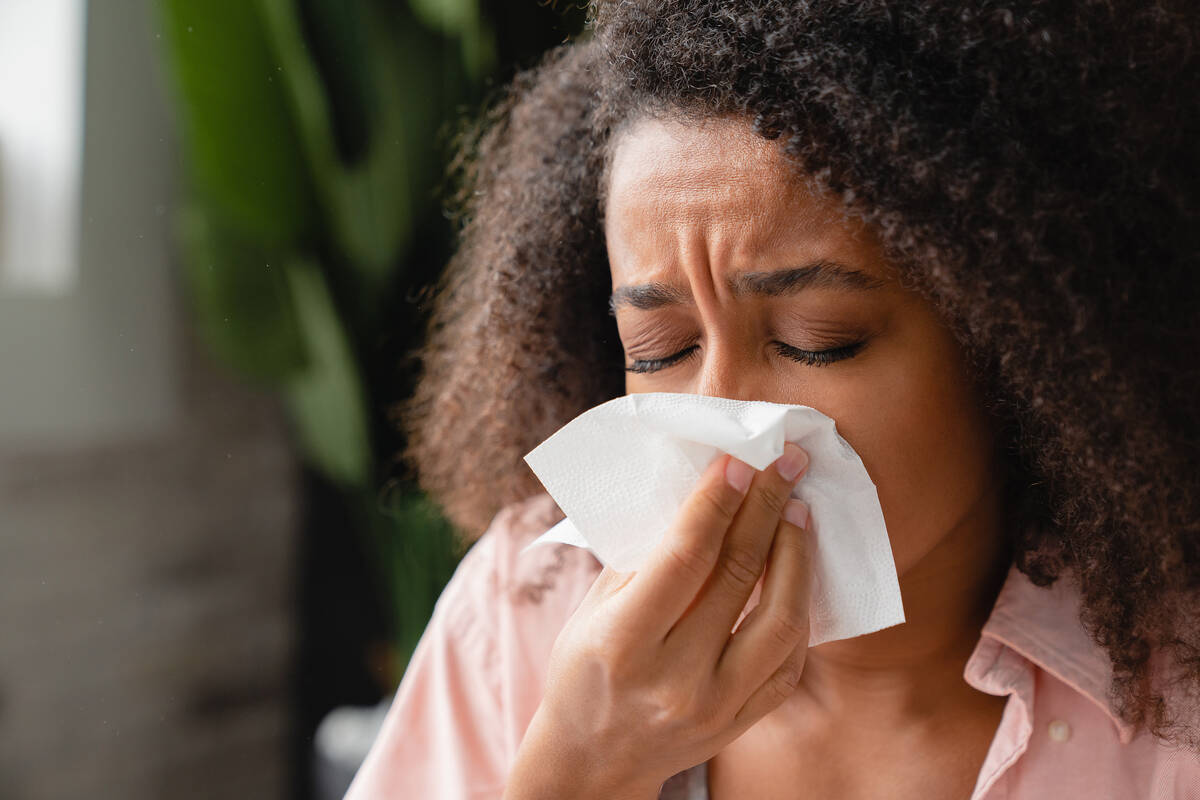Doctor recommends medications, home remedies for sinusitis
Dear Doctor: I have had ongoing nasal congestion and mucus for the past several months. I thought it was allergies, but my doctor says I likely have acute sinusitis brought on by allergic rhinitis. I was advised to try nonprescription medications to relieve my symptoms rather than antibiotics. What is the difference between this and a normal sinus infection, and what are the best treatment options?
Dear Patient: Acute sinusitis causes the spaces inside your nose — the sinuses — to become inflamed and swollen. This interferes with drainage and causes mucus to build up.
With acute sinusitis, it might be difficult to breathe through your nose. Other common symptoms include a feeling of pressure, pain or discomfort in the area around your eyes, cheeks, nose and forehead that worsens when you bend over. A headache also is common, as is tooth pain. Also, you may have thick, clear, yellow or greenish mucus from the nose (runny nose) or down the back of the throat (postnasal drainage). A change in mucus color alone does not indicate bacterial infection.
The common cold mostly causes acute sinusitis. Unless a bacterial infection develops, most cases resolve within a week to 10 days. Home remedies may be all you need to treat acute sinusitis. Sinusitis that lasts more than 12 weeks despite medical treatment is called chronic sinusitis.
Over-the-counter medications may relieve facial pain and sinus congestion associated with acute sinusitis. Several types of products are available.
The most common therapies include:
— Decongestants: Decongestants work by narrowing blood vessels to reduce inflammation and swelling that cause sinus congestion. These medications are available in liquids, tablets and nasal sprays. Use them for no more than three to five days at a time.
— Intranasal steroids: Intranasal steroids reduce inflammation, which also can reduce mucus production. They work best when used consistently for more than one week, so consider starting at the first sign of symptoms and continuing daily until symptoms resolve.
— Pain relievers: Aspirin, acetaminophen or ibuprofen may relieve pain caused by pressure buildup in the sinus cavities.
Always use over-the-counter products as directed. Also, be aware that many over-the-counter cough and cold products contain several medications. It is important to compare the active ingredients if you take more than one product.
Other home remedies you may want to try include:
— Inhale warm water vapor. Drape a towel over your head as you breathe in the moist air from a bowl of warm or moderately hot water. Or take a hot shower, breathing in the warm, moist air.
— Apply warm compresses. Place warm, damp towels around your nose, cheeks and eyes to ease facial pain.
— Drink plenty of fluids. Consuming additional fluids dilutes mucous secretions and promotes drainage.
— Use a saline nasal spray. Saline washes or sprays can remove thick secretions and allow the sinuses to drain.
— Use a nasal sinus rinse. A neti pot or other nasal sinus rinse is a container designed to rinse debris or mucus from your nasal cavity. These are often available in pharmacies and health food stores, as well as online. Be sure to use distilled water and talk to your health care professional to see if nasal rinsing is right for you.
Most people with acute sinusitis get better without antibiotics. If symptoms persist for more than 10 days, or you develop fever or worsening sinus pressure, drainage or facial pain — particularly after a period of improvement — your health care professional may need to evaluate you further for a bacterial sinus infection.
Aside from the common cold, another frequent cause of acute sinusitis is uncontrolled allergic rhinitis, or allergies. If you have frequent or recurrent episodes of acute sinusitis or develop chronic sinusitis, it is recommended that an allergist or immunologist evaluate you.
After testing to determine your allergies, you can discuss treatment options to prevent or control symptoms. Treatment options include intranasal sprays, oral medications, and subcutaneous or sublingual immunotherapy. Your health care professional can tailor these treatment options for your specific allergies.
Dr. Jacqueline Squire is an allergist-immunologist with Mayo Clinic, Jacksonville, Fla.


















